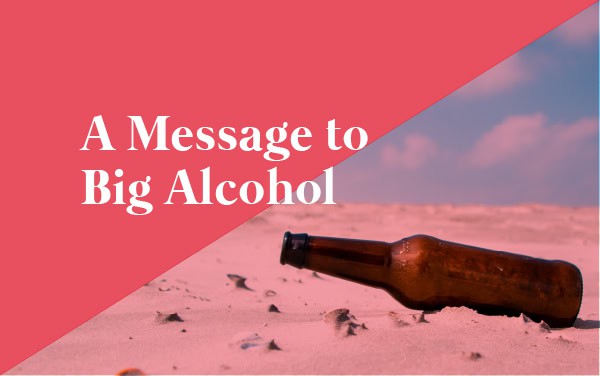
by Kerri MacFarlane | Jan 14, 2023 | Alcohol Free, Big Alcohol, Early Sobriety, Expectations, Resources
406 episodes of the Recovery Elevator Podcast were released before there was an intro with the main message being addressed to Big Alcohol. Why do you think that is? That’s a lot of Mondays to not tell Big Alcohol what we think, (or where to stick it ?). Why wasn’t this addressed before episode 407: A Message to Big Alcohol…?
Well, like Paul said…we have limited time together and it feels like a better use of our time discussing how to build a new life that no longer requires alcohol, instead of fighting Big Alcohol, or fighting the past.
In fact, although you may not feel like it right now…if you keep moving forward, if you don’t quit quitting, and you keep doing the next right thing, one day at a time…you may just find yourself thanking Big Alcohol for giving you the life you have today. Crazy to imagine, right? I know it was for me. But it absolutely is true today. I am thankful for where my struggle with Big Alcohol has led me.
So here we are…let’s call out a couple of things regarding Big Alcohol, and maybe, there is a way we can work together.
First off, let’s get real for a second Big Alcohol. We both know your business model doesn’t survive off normal drinkers. Your lights are on, your doors are open, salaries are paid because of problematic drinkers…aka: alcoholics.
This is called the 80/20 rule in business and for Big Alcohol, it’s probably a 90/10 rule. This means that 90% of revenues are coming from 10% customers.
Let’s take a normal drinker. This is someone who buys a six pack of Coors Light, drinks 2-3 beers, and the remaining 3-4 cans sit in the refrigerator in the garage for the next couple weeks or months.
That is one type of customer.
Then take the alcoholic. This is someone who buys a 12, 18, 24, or 30 pack of Coors Light… daily. Where do you think your revenue is coming from? This question is rhetorical because they already know this.
Big Alcohol, we bring this up because there needs to be accountability on your part…and here’s some reasons why:
◾️Yes, it’s the individual who is drinking excessively, but the data and science support that alcohol is the most dangerous and addictive drug on the planet.
It kills more people each year than every other drug combined. An estimated 40-75% of occupied hospital beds have underpinnings to alcohol. In 2010, a Doctor named Dr. David Nutt, hired by the British government, was tasked to put a harm score on the world’s 20 most addictive drugs. Alcohol came in at #1. In 1958 the American Medical Association classified alcoholism as a disease.
◾️No amount of alcohol consumed is beneficial to the consumer.
This a myth that you, Big Alcohol, tries to perpetuate. In the Mid 2010’s the government funded agency the NIAAA (National Institute on Alcohol Abuse and Alcoholism) performed a study to see if alcohol consumption was good for you.
The answer was…YES. Say whattttt?? ? However, it then became known the study was funded by Big Alcohol. No surprise the answer was yes! ?
In reality, no quantity of ethanol is good for you. The Huberman Lab Podcast has a fantastic episode about the effects of alcohol on your mind and body. The Stanford University Neuroscientists confirmed that no amount of alcohol is good for you.
◾️And let’s talk trash, garbage or waste.
A couple months ago Paul had new brakes installed on his vehicle and he rode his bike home from the mechanic after dropping off his truck. He took a scenic county road home for about 7 miles. While hugging the side of the road he was astonished by the amount of empty alcohol containers that littered the shoulder.
Keep in mind, this was in the part of the grass that had been maintained. Paul said he guessed there was triple or quadruple the amount of empty bottles and cans in the taller grass. (Now to be fair, he did see empty gatorade bottles, and trash that was not related to alcohol, but he said if he had to guess it was a 10/1 ratio.). Paul estimated there was an empty alcohol container every 100 feet (and that’s a safe estimate). With some easy math that put 52 bottles, or cans, every mile totaling over 350 pieces of trash on his 7 mile bike ride. That figure would be way higher if one were to walk through the taller grass.
This past October Paul did a retreat in Peru. One of their tasks was to pick up trash around a sacred temple about 20 miles outside of Cusco, which once was the capital of the Inca Empire. They filled about 4 trash bags, and again about a 10/1 ratio of alcohol containers to other trash.
Big Alcohol’s footprint is all over the globe; societal wreckage, physical disease, and in the form of excessive trash.
As human beings there is a goal that many of us share. That is to make this world a better place. ??
Big Alcohol, let me ask you this question, are you making the world a better place?
What impact are you having on society? On the fabric of family systems? Are you adding or subtracting to this world? Are you a net benefit? Or a net drain? What do you stand for Big Alcohol? Are you okay with your customers discarding your product waste into nature? Into my backyard? Into your backyard? Big Alcohol, your name, your brand, your message is on these containers that end up in our streams, rivers, and oceans. By all concerns you are still tied to the product, but you are not shouldering the burden after the monetary transaction has taken place.
This. Needs. To. Change.
As we all work on cleaning up our internal wreckage and chaos it’s time that you, Big Alcohol, start doing the same.
We here at Recovery Elevator are calling you out, Big Alcohol, to lean up your mess. A disproportionate amount of trash in nature is yours. It’s the RIGHT thing to do – to pick it up. We have a yearly service project at Recovery Elevator, and we’d love your help. Maybe take 1/2 a percentage of your marketing budget and help us out.
Big Alcohol, if you want to work with us, we’re open to it. Our email address is info@recoveryelevator.com.
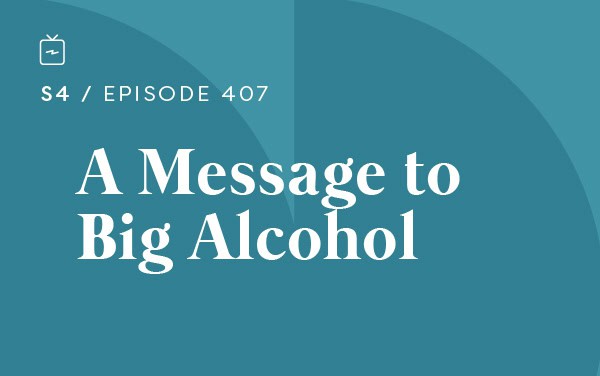
by Kris Oyen | Dec 5, 2022 | Podcast
Podcast: Play in new window | Download
Subscribe to the Recovery Elevator Podcast Apple Podcasts | | More
Episode 407 – A Message to Big Alcohol
Today we have Jeff, 48, from Joplin Missouri with 13 days of sobriety at time of recording
Registration for Restore opens December 1. https://www.recoveryelevator.com/restore/
Exact Nature: https://exactnature.com/RE20
Highlights from Paul
For the first time in this podcast, Paul speaks to Big Alcohol. Why now? We have a limited time together on each episode he has felt that discussing how to live a better life without the stuff is better use of our time.
He addresses the fact that Big Alcohol’s greatest customers are the alcoholic/problem drinkers and not the “normal” drinker that has one or two beers and the rest sits in the fridge for months. They are also responsible for perpetuating the myth that alcohol consumption is good for you. Spoiler alert: it’s not. The Huberman Lab Podcast has an episode that dives deep into the effects alcohol has on the brain/body. (https://hubermanlab.com/what-alcohol-does-to-your-body-brain-health)
The amount of trash that can be found on the sides of the road is about a 10/1 ratio alcohol related vs. non-alcohol related. Paul asks if Big Alcohol is ok with the remnants of their product being strewn all over the planet via human wreckage and excessive trash.
Paul clarifies that his goal is to not fight with Big Alcohol. His battle with alcohol and alcoholism made him who he is today, and he appreciates that.
But maybe they would be willing to share just a half of a percentage point of their marketing budget to help us clean up the mess their product has created both on humans and on our planet. We’d be interested to collaborate on our next service project. You can reach us at info@recoveryelevator.com
Better Help: www.betterhelp.com/elevator – 10% off your first month. #sponsored
[10:59] Jeff lives in Joplin, MO currently, but grew up in NC. He has a wife and three children aged 6, 4 and 8 months. He recently started his own business and enjoys golf, reading, creative writing and poetry, and writing and playing music.
Jeff took his first drink with a friend at home when he was 17. He remembers the occasional drink at a party in high school but didn’t really start drinking until he turned 21. Through his 20’s drinking was part of life. He was able to cut back or quit drinking whenever he felt it was getting to be too much.
Jeff says he didn’t have a true rock bottom moment but after an incident that found him ramping up his drinking, he chose to seek some counseling for PTSD. He started to realize that the way he had been drinking and handling life was becoming unsustainable. He wants to be present for his family and didn’t feel that he was able to enjoy life while drinking.
Jeff found himself going to his first AA meeting in many years 13 days ago, has found a sponsor and attends meetings daily. He has been staying busy with home projects and acts of service and feels that working with his hands relieves stress and helps him avoid getting lost in negative thought patterns.
Jeff doesn’t have a long-term goal in sobriety, he is just taking it day by day. Right now, he just wants to be sober and process his emotions without alcohol and enjoy his family and the life he has built.
[47:57] Paul’s Summary
Socrates said the secret to change is to focus all your energy not on fighting the old but on building the new. Mother Teresa said she would not participate in wars on hunger or on terrorism because there is an equal amount of disproportionate energy on the other side. Much like we have seen with the war on drugs: trillions of dollars wasted to learn that you cannot punish addiction out of people. If someone from Big Alcohol is listening, please don’t feel attacked, we want to work together in cleaning up the planet.
Resources
Connect with Cafe RE – Use the promo code OPPORTUNITY to waive the set-up fee.
Recovery Elevator YouTube – Subscribe here!
Sobriety Tracker iTunes
Recovery Elevator
This isn’t a no to alcohol, but a yes to a better life.
I love you guys
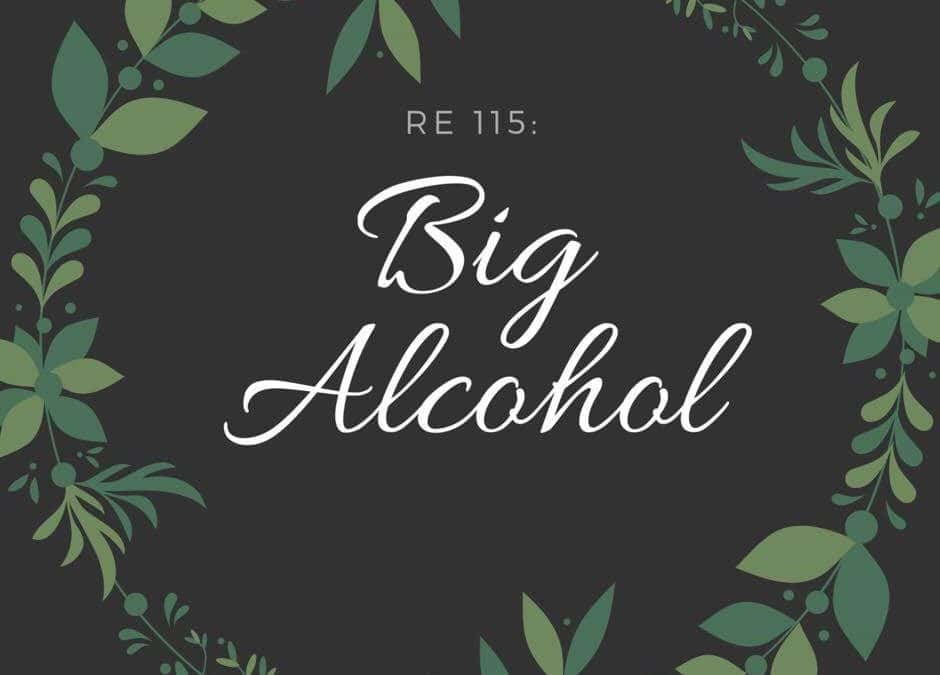
by Paul Churchill | May 1, 2017 | Podcast
Podcast: Play in new window | Download
Subscribe to the Recovery Elevator Podcast Apple Podcasts | | More
Julie, with 92 days sober, shares her story………
Big alcohol companies like to blame the individual rather than the poison that they sell. The liquor industry spends millions of dollars on advertisements that tell us we should drink responsibly. If we do not drink responsibly, than we are to blame. We should know when to say when, right? The facts show that alcohol kills 85,000 people each year. But to the companies selling the booze, money is the name of the game. These companies make billions while avoiding high taxes because alcohol is not taxed as high as other beverages.
*********************************Don’t be duped by alcohol advertisements*****************************************
SHOW NOTES
[9:21] Paul Introduces Julie
Julie – I have been sober for 92 days and it feels really good. I did not think that I could do it. I am 35 years old and work as a nurse. I enjoy music and going to concerts.
[11:00] When did you realize you had a problem with alcohol?
Julie – I have known for years. I just could never get enough. My first issue was with drugs so I did not focus on my alcohol problem. I went to rehab for drug abuse in 2010 and stayed sober for 18 months after that. The rehab helped with my drug use but then I turned to alcohol. When I tried to quit alcohol, I had hallucinations and ended up spending 4 days in the psych ward.
[14:24] What happened after your 18 months of sobriety?
Julie – I had already started planning to drink. I knew I was going to attend another concert and thought I could drink normally. I ended up drinking so much that I blacked out and continued to drink for 5 more years. I always told myself, “when _______ happens,” I will stop drinking. But I never stopped. I woke up each morning feeling defeated, angry and bitter.
[18:00] Was your rock bottom 92 days ago?
Julie – I did not have a bottom 92 days ago. I was just tired of being sick and tired. I kept wondering when I was going to lose my medical license. I knew it was just a matter of time before this happened. Then, I thought I would try to quit and when it didn’t work, I could at least say that I had tried.
[19:05] Paul asks Julie how she got sober 92 days ago.
Julie – I listened to a lot of podcasts and made it to 30 days. I was feeling really good but still ordered a glass of wine while at lunch with my brother. I did not even enjoy it. I finally admitted to my family that I was done drinking.
[21:23] Paul and Julie discuss accountability.
Julie – My family has been super supportive of my sobriety. I try to take it 1 situation at a time. I still have not been completely honest with them about how much I was consuming but my parents are very encouraging to me.
[25:00] What else did you do?
Julie – My best friend has been sober for over a year and she has been supporting me. I do a lot of reading and am constantly working at changing my mindset.
[27:47] How have your cravings been?
Julie – I try and distract myself by taking my dogs for a walk or keeping busy. I know that the cravings will pass.
[28:34] How did you feel during your first week of sobriety?
Julie – I was pretty apprehensive the first week. I did not think that I could do it. Once 30 days went by, I felt that I had a chance at making it. I am more confident as each day passes.
[29:34] What advice would you give to your younger self?
Julie – You pay a price for everything that you do. You do not know everything when you are young. Drinking is not fun and games anymore.
[30:00] What have you learned in sobriety?
Julie – When I was drinking, I was not living in reality. I was just going through the motions. I have learned that it is possible to live sober and have a clear mind. I did not want to accept that I would be drinking for the rest of my life and possibly losing my career.
[31:00] What are your rules in sobriety?
Julie – Attitude is everything and I am learning as much as I can.
[33:38] Do you have a bucket list?
Julie – I would like to get out of my comfort zone more, try meditation and yoga.
[34:47 ] Rapid Fire Round
- What was your worst memory from drinking? withdrawing while in the pysch ward
- Did you ever have an “oh-shit” moment? every day was an oh shit moment
- What’s your plan moving forward? staying active and reading
- What’s your favorite resource in recovery? RE podcast and the private FB group
- What’s the best advice you’ve ever received (on sobriety)? do not feel like you have to do it all at once
- What parting piece of guidance can you give listeners who are in recovery or thinking about quitting drinking? take the first steps and worry about tomorrow when it gets here
- You might be an alcoholic if….. you loathe the existence of everyone at the gas station because when they see you, they know that you cannot drink normally
Resources mentioned in this episode:
Recovery Elevator Retreat
Connect with Cafe RE– Use the promo code Elevator for your first month free
Sobriety Tracker iTunes
Sobriety Tracker Android
Sober Selfies! – Send your Sober Selfie and your Success Story to info@recoveryelevator.com
Good Reads to Check Out: Blackout, This Naked Mind, Beyond the Influence
“We took the elevator down, we gotta take the stairs back up, we can do this!”
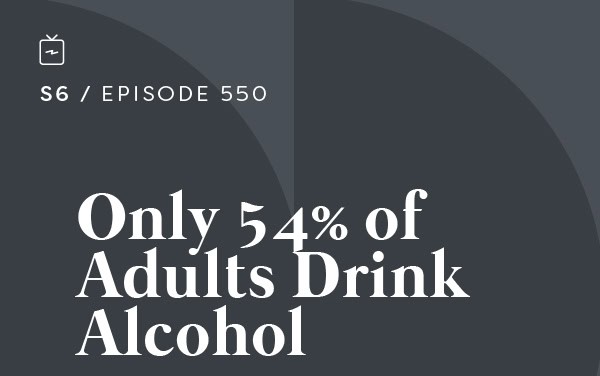
by Kris Oyen | Sep 1, 2025 | Podcast
Podcast: Play in new window | Download
Subscribe to the Recovery Elevator Podcast Apple Podcasts | | More
Today we have Odette. She’s 37 years old, lives in San Diego, CA and she took her last drink 486 days ago.
This episode brought to you by:
Better Help – 10% off of your first month #sponsored
Exact Nature – 20% off your order with code RE20
Registration is open for our next retreat in Costa Rica. That’s February 21st – 28th, 2026 in Guanacaste, a Blue Zone. We are over halfway full, but we have seven spots left.
[03:09] Thoughts from Paul:
When 17 people send Paul an article in the span of 2-3 days, he knows it means something big just came out… and this one is big because it disarms one of the biggest reasons why it’s so hard to quit drinking: everyone else is drinking. Which is no longer true. Several publication released this article and here’s the link for the CBS article.
It says – only 54% of U.S. adults say they drink alcohol, a record low.
There is a growing belief that even moderate alcohol consumption is a health risk which is 100% correct. In 2015 28% of Americans though this but now in 2025, that percentage has almost doubled to 53%.
While mostly younger Americans are driving this trend, but older Americans are getting on board as well and the alcohol industry is tanking. Paul says that he can’t help but feel that we all have had a part in this. That we, including you, the listener, have saved lives by doing our part getting the proper messaging out about alcohol, and people are listening.
So, you’re not the only one who doesn’t drink. Paul doesn’t drink, Odette doesn’t drink and 46% of Americans don’t drink either.
[07:57] Paul introduces Odette:
In addition to being interviewed on episodes 128 and 231, Odette was the podcast host from episode 277 to 378.
Odette is from Guadalajara, Mexico but has been living in San Diego, CA with her husband, two kids and a variety of pets. She works in operations for a company called Chosen Foods. Around a year ago, she began teaching breathwork as well. For fun, she and her family enjoy being outside, especially at the beach.
Odette shares that addiction runs in her family, her father, who recently hit 16 years sober, went into rehab when Odette was 18. At the time she was struggling with an eating disorder and clinical depression. She never expected alcohol to be a problem for her.
Odette moved to the US with her husband after she graduated college. She kept her eating, and depression issues a secret for about a year after they got married but ended up going into treatment for it because she knew she needed to be healthy in order to have kids.
After having their first child, Odette says that she fell into the “mommy wine culture” pretty quickly. Playdates included toys for the kids and wine for the moms. Over time she began to look forward to drinking but there was always a knowing that this wasn’t her authentic self, she says. The drinking helped her feel like she fit in.
The drinking and her eating disorder didn’t play well together. She found the lines getting blurry and she wasn’t listening to her body as well as before. Since she didn’t drink much, she wasn’t sure she really had a problem, but it was all taking a toll mentally.
During the time Odette was hosting the RE podcast, her grandmother got sick. She lives far from her family and the uncertainty of the situation and pain of not being there was too much for her. Even with all of her tools, Odette found herself relapsing. She struggled with the shame of it and felt a little lost but leaning into the community and learning how to accept herself has been important to getting her footing back.
Odette says recovery isn’t about fixing yourself, it’s about accepting all of the things that you are. Breathwork has been helpful for Odette to learn how to get back in touch with her body and be present.
The Harmony House
Odette Cressler
Recovery Elevator
You took the elevator down, you gotta take the stairs back up.
I love you guys.
RE on Instagram
Recovery Elevator YouTube
Sobriety Tracker iTunes
Café RE
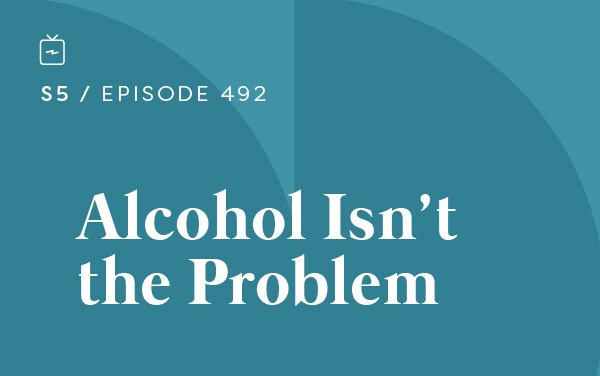
by Kris Oyen | Jul 22, 2024 | Podcast
Podcast: Play in new window | Download
Subscribe to the Recovery Elevator Podcast Apple Podcasts | | More
Episode 492 – Alcohol Isn’t the Problem
Today we have Kristi. She is 50 years old and lives in Rome, GA. She took her last drink on December 11th, 2023.
We just opened a few more spots for our upcoming retreat this August 14th through 18th in beautiful Bozeman, MT.
Sponsors for this episode:
Visit Better Help today to get 10% off your first month
Exact Nature use promo code RE20 to receive 20% of your order
[02:19] Thoughts from Paul:
We think this is all about alcohol, but it’s not. There are different support groups for many various addictions, and the one thing that they have in common is whatever comes before the word “Anonymous” is not the problem.
Page 64 in the Alcoholics Anonymous Big Book states that the liquor was but a symptom. The booze isn’t the problem. There are deeper causes and conditions that are manifesting themselves in a drinking problem, gambling problem, shopping problem, etc.
For many of us, alcohol isn’t the problem. It is but a symptom of what went down in our infant and toddler years. Childhood trauma (which can be both what happened to us and what didn’t happen for us) can leave us with holes that we end up doing anything to fill. Many of those interviewed on this podcast explain that the first drink made them feel whole again.
We drink to change the way we feel and to cover up uncomfortable emotions. Alcohol is being used to cover up deeper issues. This may or may not be what you wanted to hear today, but it’s important to keep this podcast real.
TRIGGER WARNING:
The upcoming interview references self-harm.
[10:54] Kris introduces Kristi:
Kristi is 50 years old and is a hairstylist in Northwest Georgia. She has a 33 year old daughter with special needs, a partner and three dogs. For fun she enjoys reading, cooking and looks forward to getting back to kayaking.
Kristi says she had a good childhood. Her parents divorced when she was young, and they both remarried when she was around seven. Growing up, Kristi felt like she was on the fringe of being part of the “in” crowd so would do what everyone else was doing to fit in.
Kristi had her first drink when she was around 14 years old. At age 16, she got pregnant and dropped out of school. After she had her daughter, she started experimenting a lot and found herself in and out of destructive relationships.
Around the age of 27, Kristi found herself addicted to opiates. During this time her father, who struggled with mental illness, committed suicide. This sent her on a downward spiral. About a year later she found a place that helped her quit the opiates. She was there for 8 months and when she returned, she drank because she knew that pills were her issue, not alcohol.
Kristi says she was a binge drinker. Alcohol was a way for her to mask the pain of the loss of her father as well as the struggles she had raising a special needs child.
As a hairdresser when COVID happened, she says she went downhill quickly. There was no work and being homebound found her day drinking and over time it started earlier in the day. The day drinking continued after returning to work and she had a few events that led her to seek treatment. It was an up and down experience for her after the first detox, but Kristi never gave up and neither did her family and friends.
After six months of sobriety, Kristi says it feels different this time. She has been leaning into Café RE and reaching out to some other friends to expand her connections. She found this and mediation to be most helpful to her.
Recently Kristi started going to college with the goal of being a counselor. She wants to use what she has been through to help others.
Kristi’s favorite resources in recovery: Cafe RE and podcasts.
Kristi’s parting piece of guidance: just do it. Life is so much clearer. There are so many things on the edge of your fingertips if you just put down the bottle.
Recovery Elevator
Go big, because eventually we all go home.
I love you guys.
RE on Instagram
RE merch
Recovery Elevator YouTube
Sobriety Tracker iTunes







